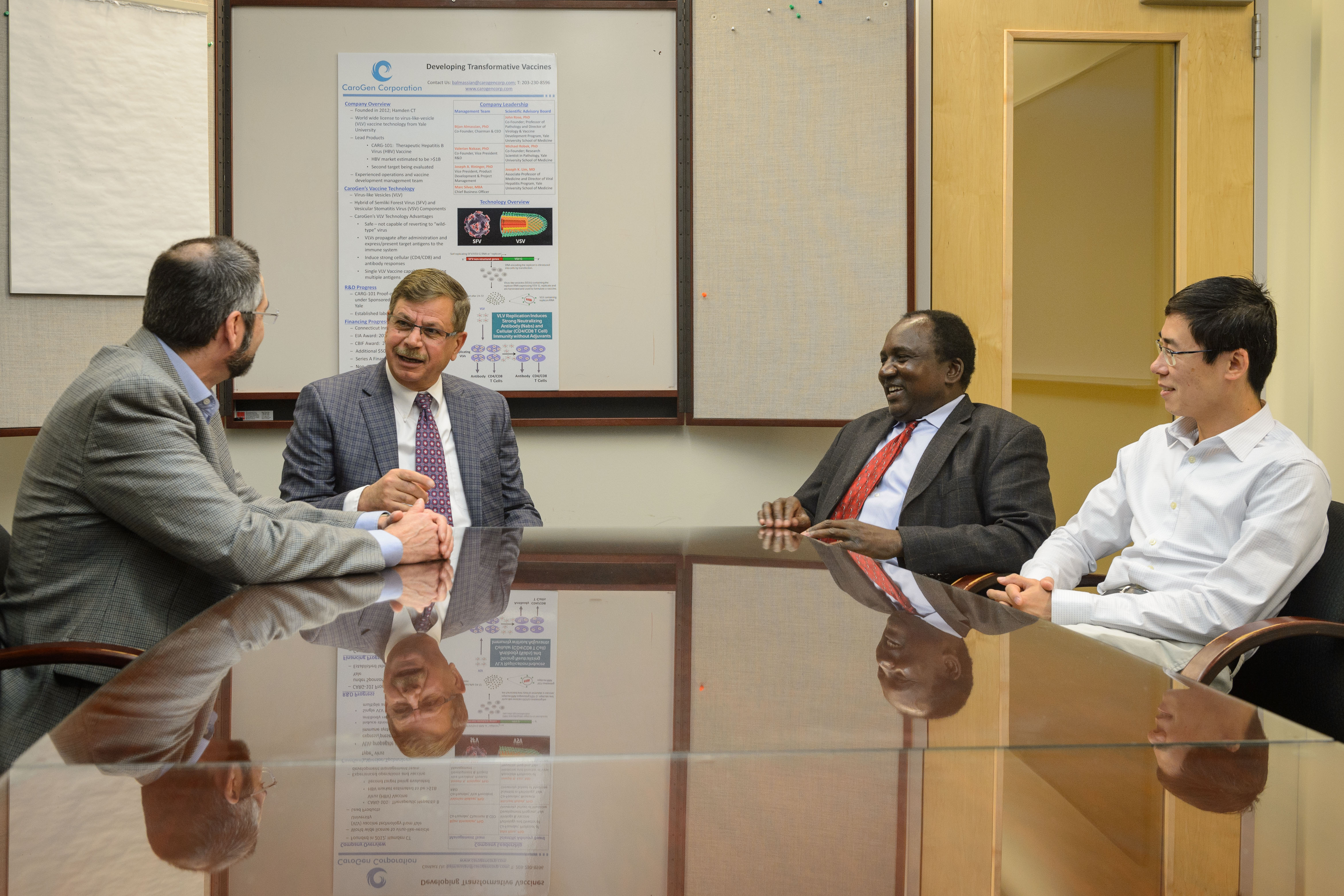Researchers at UConn Health and CaroGen Corporation, a biopharmaceutical company based at UConn’s Technology Incubation Program (TIP) facility in Farmington, have developed a promising clinical candidate for colorectal cancer treatment.
Kepeng Wang, assistant professor of immunology at UConn Health and a member of CaroGen’s Scientific Advisory Board, identified CARG-2020 as an oncolytic vector – a virus that infects and kills cancer cells – with the capacity to impact three critical cancer pathways.
Using CaroGen’s patented Artificial Virus for Infectious Diseases and Immune-Oncology (AVIDIO) platform, CARG-2020 targets three pathways by releasing an RNA expressing three immuno-modulators, each formulated to modify one of three pathways.
The novel benefit of CARG-2020 is that it can attack all three pathways at once. Scientists have previously had limited successes targeting these pathways individually.
“They each carry out a unique function,” Wang says. “We think this combination approach will be the strongest immunology against cancer.”
The first pathway, IL-17, promotes tumor growth and impedes the recruitment of anti-cancer T‑cells. IL-12 is a cancer-fighting pathway normally shut down in tumors. It supports the development of T‑cells. The PD-1 pathway also supports tumor growth by binding to T‑cells and making these cells less active against tumors.
According to initial data, this approach is proving effective at not only regressing solid tumors, but preventing their regrowth.
“It’s really groundbreaking,” Bijan Almassian, chief executive officer and co-founder of CaroGen, says. “We hope to expand this collaboration and go beyond colorectal cancer.”
The AVIDIO platform, developed by Yale University School of Medicine professor John Rose more than a decade ago, was licensed to CaroGen in 2012. The diverse platform has many applications in the treatment and prevention of cancer and infectious diseases.
CARG-2020 is also being tested in other solid tumors including ovarian and liver cancer. In addition, CaroGen is working with scientists from Yale to develop a COVID-19 vaccine using AVIDIO.
Wang’s lab has been working with CaroGen since 2016 when professor and chair of immunology at UConn Health, Anthony Vella, introduced them.
“We work very well together and I’m very proud to be part of that,” Wang says.
This collaboration outlines a fruitful business model in which research labs and corporations support one another’s missions for the overall advancement of science.
“UConn Health is a source of a lot of innovation and great science, and collaboration is easy, given our location at UConn’s business incubator, the Technology Incubation Program (TIP),” Almassian says.
The next steps for CARG-2020 are to seek funding to bring it into a clinical trial setting.
“It’s been extremely productive and efficient,” Almassian says. “We’re addressing a major unmet medical need.”
Wang holds a Ph.D. in biochemistry from the Hong Kong University of Science and Technology. His research focuses on the role of interleukin-17 (IL-17) family cytokines in colorectal cancer development and therapeutic intervention.
Follow UConn Research on Twitter & LinkedIn.



